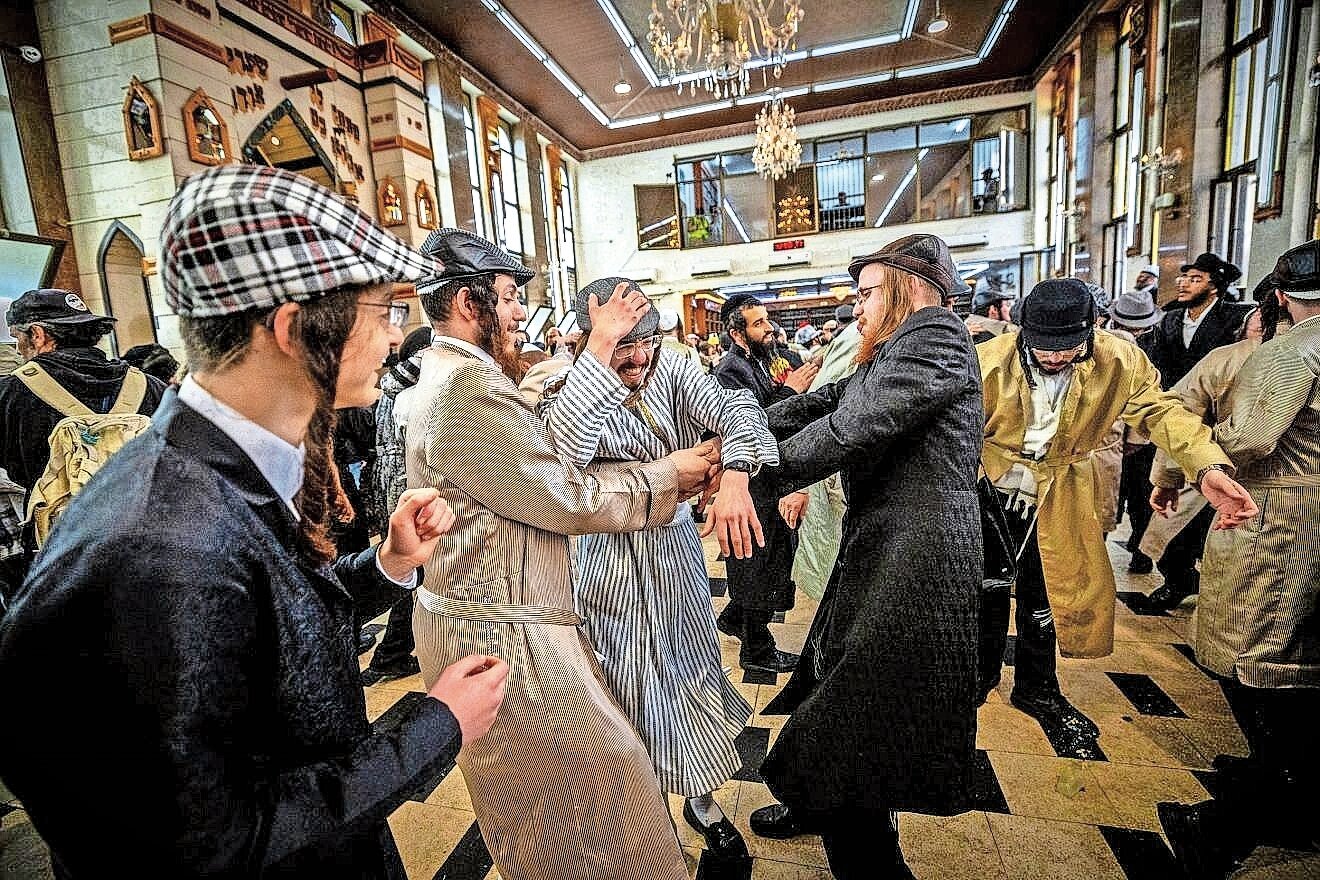Feeling Adar’s joy, despite all the pain
The Talmud advises that when Adar comes in, we increase in joy.
But how can we celebrate when our brothers and sisters in Israel are in danger, displaced, fighting for their lives, besieged and still under attack north and south?
I was a guest speaker at a hotel program over Sukkot in Tuscany on Oct. 7, Shabbat Shemini Atzeret followed by Simchat Torah — when we heard the shocking news of the Hamas attack on Israel. There were a number of Israelis with us at the hotel. One woman couldn’t stop crying.
Let’s begin by asking why should anyone be happy. Because life is good? And what if it’s not so good now — should we be depressed?
Psalm 100 tells us, “ivdu et hashem b’simcha (serve G-d with joy).” It doesn’t qualify this by saying when or under what circumstances we should be happy. So, as we are always meant to be serving G-d, it appears that the psalmist expects us to be happy always, no matter the situation.
But is that possible? Must we throw caution to the wind and sing and dance with gay abandon? Does G-d need a bunch of idiots who are blissfully oblivious to reality serving Him with joy when the world is falling apart?
Actually, some people do have that attitude. Are you old enough to remember the ridiculous song that, unbelievably and to my utter horror, became an international hit? Written by Bobby McFerrin in 1988, it won the Grammy Award for song of the year despite having — to my mind — the inanest lyrics of any song in history.
The song was “Don’t Worry, Be Happy.” Here are some of its less than memorable lyrics:
Don’t worry, be happy
In every life we have some trouble
But when you worry you make it double
Don’t worry, be happy.
The landlord say your rent is late
He may have to litigate
Don’t worry, be happy.
Why?
’Cause when you worry your face will frown
And that will bring everybody down
So don’t worry, be happy.
This is not a philosophy of life and certainly not a solution to the cause of our worries.
• • •
So let me share with you some of the lyrics of another song which I believe will give us a motivation to be happy and not worry. It goes back over 200 years, and it’s in Yiddish.
The composer of this song, entitled “Ah Dudeleh,” is the legendary Chassidic master Rabbi Levi Yitzchak of Berditchev (1740-1809). The song is.”
Dudeleh is a play on words. Literally, it means a little ditty, a limerick or a ballad. But dudeleh can also come from the word du, which in Yiddish means “you.” And who is “you”? The One Above, G-d Almighty.
Here’s the chorus:
Look to the East? Du. Who do you see? You! Almighty G-d. Look to the West? Du! Hashem, You again. North? You. South? You. Look Up? You. Look down, You again!
Wherever I turn what do I see? Du! You, Hashem. You are all over, all pervasive, all-present. On every continent and in every corner and crevice.
The most important part of the song says:
When times are good? Who is responsible? You Hashem. And if, G-d forbid, things are not so good? It’s You again, Hashem. Everything is part of Your Divine Providence and Your Higher Plan.
Here’s the critical bottom line: If indeed whatever life throws at me, good or bad, comes from You, then it must be good.
• • •
We have always believed that G-d runs the world and G-d is good. He’s not throwing darts or lightning bolts at us. He loves us. This is a cardinal principle of Jewish faith and theology.
So, even when things appear not to be good, we believe that somehow, with the passage of time, we will see G-d’s higher plan unfolding. Sooner or later, we will see that everything was for the best and, yes, everything is actually good.
That is why regardless of the situation now or at any other time, we are called upon to “Serve G-d with joy.”
G-d is running the world and He alone is calling the shots — not Hamas, not Iran, not even Vladimir Putin. “The hearts of kings are in the hands of G-d,” says Proverbs 21.
Let us continue to pray for our brethren in Israel and the world over. Let us continue to pray that we won’t need to rely on our faith alone but will have tangible, physical reasons to feel happy, safe, secure and comfortable, with no threats, no war, no terror and no violence.
That Shemini Atzeret in Tuscany, I told my congregants that we must dance with the Torah, even on Oct. 7. We dare not allow our enemies the pleasure of destroying our holidays. We will dance through the darkness and overcome our foes by rededicating ourselves to our Jewish mission.
We will celebrate the joyous month of Adar and the beautiful festival of Purim, please G-d, with joy and happiness, with faith and fortitude, with smiles and l’chaims, with singing and dancing. We will have a happy Purim and, please G-d, we will all see the downfall of today’s Hamans speedily in our day.

 44.0°,
Mostly Cloudy
44.0°,
Mostly Cloudy 





